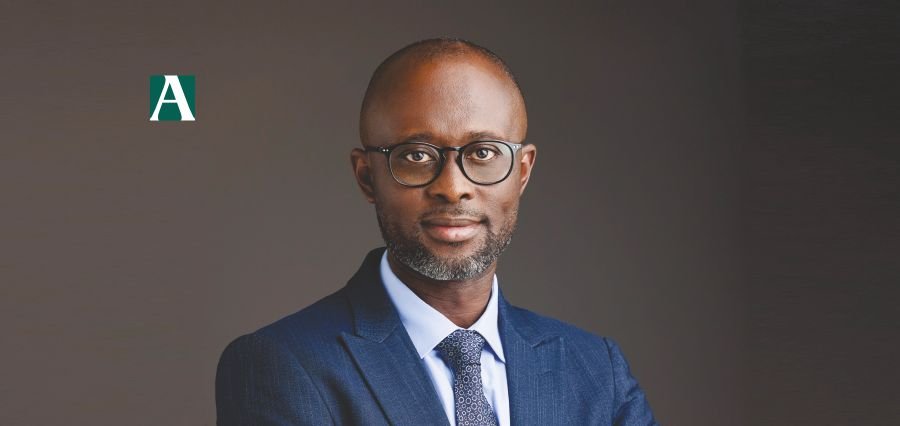Leaders in the modern workplace must be able to handle many cultural contexts while maintaining a people-centered company strategy. In a globalised world where the work model is being redefined by digital and AI-driven innovation, companies are looking for human resources experts who recognise that technology enhances rather than replaces human relationships. These leaders need to maintain empathy in the face of rapid organisational change, produce tangible results while fostering inclusive environments, and strike a balance between global visions and local nuances.
Today’s HR directors succeed across the conventional administrative divide. They are change agents who transform organisations to adapt to a changing future, business-driven strategic partners, and culture architects who create spaces where people flourish. They are aware that long-term success results from coordinating individual objectives and aspirations with corporate aims and establishing work environments where staff members are valued, heard, and enabled to make valuable contributions.
The most successful HR directors have a special blend of strategic thinking, cultural awareness, and sincere leadership. As they create high-achieving teams, they listen carefully, lead with purpose, and support diversity. They recognise that they are about more than just putting policies into action; they are also about advocating for, mentoring, and developing the next generation of leaders. They understand that actual impact is measured not only in hard KPIs but also in the daily lives of workers at all organisational levels.
A Strategic Visionary in Human Resources
Nixon Amoah-Awuah serves as Regional Head of HR for Ghana and AWA at Ecobank Ghana PLC. Here, he has established himself as a transformative leader in human resources management. His journey into HR began unexpectedly, as his background in science initially pointed towards a different career trajectory. However, his natural inclination towards working closely with people and influencing workplace experiences led him to discover his passion for human resources.
Nixon’s transition into HR reflects his core belief that people form the heart of every successful business. This philosophy drives his commitment to building environments where individuals can grow, contribute meaningfully to organizational missions, and feel genuinely valued. His approach combines strategic thinking with authentic care for employee development and organizational success.
Defining Impact Through Meaningful Change
As Regional Head of HR for Ghana and AWA, Nixon defines impact as the ability to drive meaningful, measurable change that elevates both people and organizational performance. He focuses on creating workplace cultures where individuals feel valued, empowered, and inspired to perform their best work while ensuring HR strategies align with broader business goals to deliver sustainable growth.
Nixon views impactful leadership as extending beyond HR operations to influence outcomes across the organization. He concentrates on building resilient teams that can thrive in the evolving world of work, shaping policies that foster equity, inclusion, and belonging, guiding leadership development, and strengthening employee experiences. For him, true impact manifests not only in achievements but also in enabling others to succeed.
Being recognized as an impactful HR leader represents both honor and responsibility for Nixon. This recognition affirms his commitment to purpose-driven leadership grounded in empathy, integrity, and results. He sees it as a reminder that HR’s role continues evolving, requiring professionals to challenge the status quo and lead with vision and integrity. The recognition encourages him to continue growing, mentoring, and making lasting differences in organizations and communities.
Harmonizing Strategies Across Diverse Landscapes
Nixon’s role spans diverse cultural and operational landscapes, requiring a balanced approach that respects local uniqueness while aligning with overarching business and HR priorities. His strategy begins with listening and understanding, taking time to engage with teams to comprehend their specific cultural nuances, regulatory environments, workforce expectations, and business realities.
This thorough understanding enables Nixon to develop people strategies that align with global or regional goals while remaining culturally relevant and locally applicable. He emphasizes communication and collaboration as key elements, fostering knowledge sharing within and across teams, encouraging data-driven decision-making, and empowering local HR teams to serve as strategic partners in executing people initiatives.
Connecting Initiatives to Values and Aspirations
Nixon believes that for HR to make a genuine difference, initiatives must connect deeply with shared values and aspirations. He achieves this through three key pillars: listening, aligning, and co-creating.
Listening Intentionally forms the foundation of his approach. Nixon prioritizes open, ongoing two-way dialogue with colleagues at all levels through surveys, focus groups, one-on-one conversations, and town halls. These channels help him stay connected to workforce priorities, whether career growth, work-life balance, recognition, or sense of purpose.
Aligning with Organizational Purpose and People’s Aspirations ensures every HR initiative clearly ties to organizational mission and values while supporting individual aspirations. Rather than simply rolling out development programs, Nixon designs them to create meaningful careers. He works toward creating a culture that demonstrates an inclusive experience, prioritizing respect, accountability, excellence, integrity, and teamwork.
Co-creating with the Workforce reflects Nixon’s belief that HR should not operate in isolation. Involving employees in designing and implementing initiatives leads to stronger ownership, higher engagement, and better outcomes. When people see themselves reflected in delivered programs, policies, and experiences, it builds trust and drives commitment with minimal resistance to change.
Transformative Leadership Through Challenge
A significant project during Nixon’s tenure with Ghana’s second-largest telecom company challenged him and reshaped his leadership thinking. The organization struggled with female representation at the leadership level in the Technology Function. As HR Business Partner for the function, Nixon developed a strategy to improve diversity at the leadership level.
Working with the Chief Technology Officer, they created and executed a strategy that improved female representation at the senior level from approximately 12% to 26% over three years. This challenge proved particularly complex because few females pursue STEM courses and enter engineering fields, especially in their region.
The strategy required partnerships with numerous educational institutions, including two universities in Ghana. Despite subtle internal barriers, the compelling case and demonstrated results from diversity enhancement made it a flagship project that developed female engineers into leadership positions. This experience required Nixon to think strategically while remaining agile, fundamentally reshaping his leadership approach, particularly regarding diversity and inclusion.
Preserving Human Elements in Digital Transformation
In an era of AI, digital transformation, and remote work, Nixon believes HR must fiercely protect and champion core human elements. Despite technological advances, the essence of HR remains fundamentally human.
Empathy and Emotional Intelligence cannot be replicated by technology. Nixon emphasizes that HR must continue leading with empathy, especially during moments of change, crisis, or personal challenge. No matter how advanced systems become, the ability to understand, connect with, and support people on a human level remains irreplaceable.
Trust and Transparency become increasingly important as digital systems expand data collection and automation. Nixon sees HR as a guardian of trust, ensuring transparency in data usage, maintaining ethical standards, and upholding employee privacy and dignity.
Belonging and Inclusion grow more critical in increasingly virtual and global workplaces. HR must ensure people feel seen, heard, and valued regardless of where they work or who they are, creating genuine community and belonging.
Human-Centered Leadership becomes more essential, not less, with AI’s rise. Nixon believes HR must continue developing leaders who can inspire, coach, and relate to people, not just manage systems.
Ultimately, Nixon maintains that technology should enhance human experience rather than replace it. HR must maintain this balance, ensuring that humanity remains at the center of every policy, process, and platform.
Investing in Future HR Leaders
Nixon views mentorship and talent development as personal commitments rather than mere HR responsibilities. As Regional HR Head, he considers identifying, nurturing, and empowering the next generation of HR professionals his duty. He believes that they will shape the future of work in the region and group.
He actively mentors upcoming HR talent through structured programs and informal one-on-one engagements. Nixon focuses on helping them build confidence, develop strategic thinking, and navigate complex challenges with clarity and resilience. He shares real-world insights beyond theory, ensuring they are equipped for both operational excellence and strategic leadership.
Nixon believes the best way to develop future leaders is modeling the leadership they aspire to achieve. He leads with transparency, inclusiveness, and integrity, knowing they observe, learn, and draw inspiration from his leadership style rather than just his words. He has also honored numerous invitations to conferences and seminars to share thoughts and build capacity.
His goal is to leave a legacy of HR leaders who are not only skilled and strategic but also values-driven, people-focused, and ready to lead with purpose in an ever-evolving and demanding business world.
Championing Cultural Values Across Borders
Nixon champions several cultural values that form the foundation of his leadership approach:
Integrity and Transparency build trust as the foundation. He prioritizes open communication, ethical behavior, and honesty at every level by holding leaders accountable and encouraging employees to speak up.
Inclusion and Belonging focus on creating environments where everyone feels valued, respected, and heard, ensuring diverse perspectives contribute to organizational success.
Collaboration and Accountability encourage cross-functional teamwork while holding teams responsible for both results and behavior, creating shared ownership of outcomes.
Continuous Learning and Growth promote personal and professional development, fostering growth mindsets and adaptability in fast-changing environments.
Employee Well-Being prioritizes mental, emotional, and physical health, recognizing that healthy employees drive organizational success.
Nixon embeds these values across teams and borders through strategic approaches. His hiring and onboarding processes align recruitment strategies with core values through structured interviews assessing culture fit. Onboarding extends beyond policy to immerse new hires in company purpose and values from day one, with local and regional customization as needed.
Employee listening systems gather feedback through regular engagements, focus groups, and town halls, ensuring timely action on employee priorities and reinforcing that culture is co-created. Recognition programs aligned with values celebrate employees who embody core values, ensuring systems remain inclusive and equitable.
Measuring Success Beyond Metrics
For Nixon, success as an HR leader extends far beyond dashboards and KPIs. While metrics remain important, true success is reflected in everyday employee experiences, how they feel, grow, connect, and thrive within the organization. Success means knowing that HR work improves not just performance but people’s lives, creating environments where individuals and organizations can grow with integrity, dignity, and purpose.
This holistic view of success recognizes that meaningful impact often occurs in quiet moments when someone feels heard, grows through guidance, or stays because of the culture Nixon helped build. These human connections and transformations represent the kind of leadership that truly lasts and creates sustainable organizational change.
Guidance for Emerging HR Leaders
Nixon offers comprehensive advice to emerging HR leaders who aspire to lead with impact. His guidance emphasizes that impactful leadership transcends position or title, focusing on the difference made in people’s lives and cultures shaped.
He encourages leaders to ground their leadership in purpose, understanding why they chose HR and letting that purpose guide decisions, especially difficult ones. When leaders operate with clarity of purpose, their impact becomes more meaningful and lasting.
Nixon emphasizes never losing sight of the human being behind every policy, number, or process. Empathy, active listening, and compassion represent the most powerful tools available to HR leaders.
He advocates for using HR’s powerful voice to champion what is right, even when difficult. Advocating for equity, fairness, and integrity requires courage to challenge the status quo, which defines impactful leadership.
Building others while ascending to the top reflects Nixon’s belief in mentoring, coaching, and uplifting those who are following him. Real leadership involves helping others believe they can lead too, rather than simply being the best in the room.
Finally, Nixon stresses that actions must match words. Leadership should be defined not just by results but by how people are treated at every level, every day. He reminds emerging leaders that impact is not always loud or immediate but is often felt in quiet moments of connection, growth, and cultural transformation.




